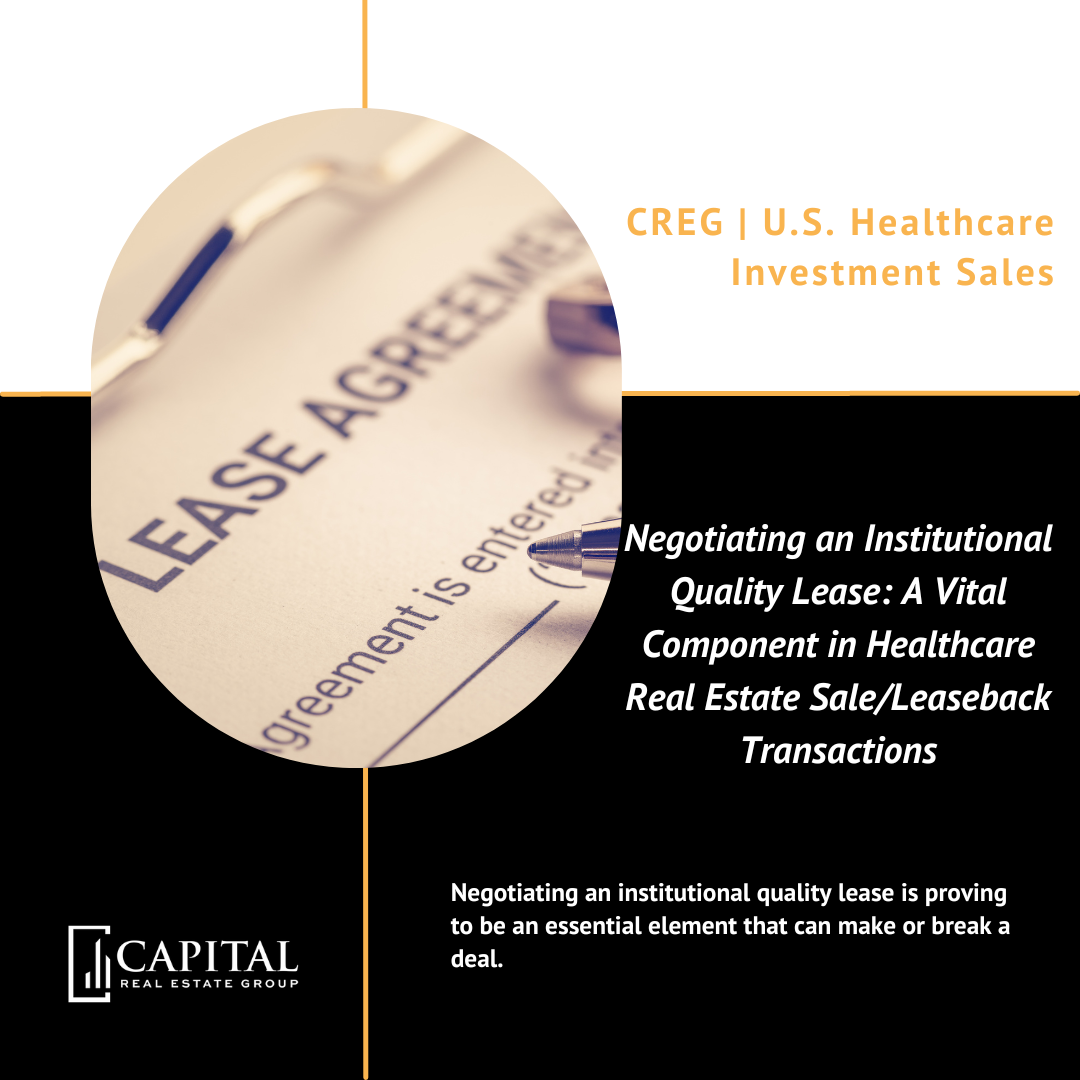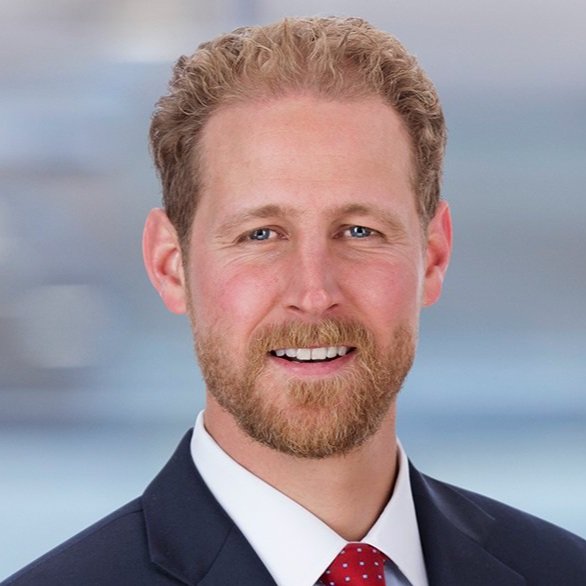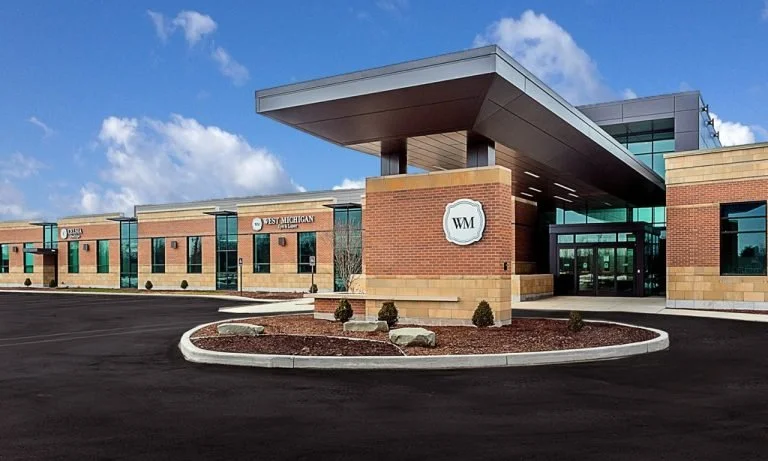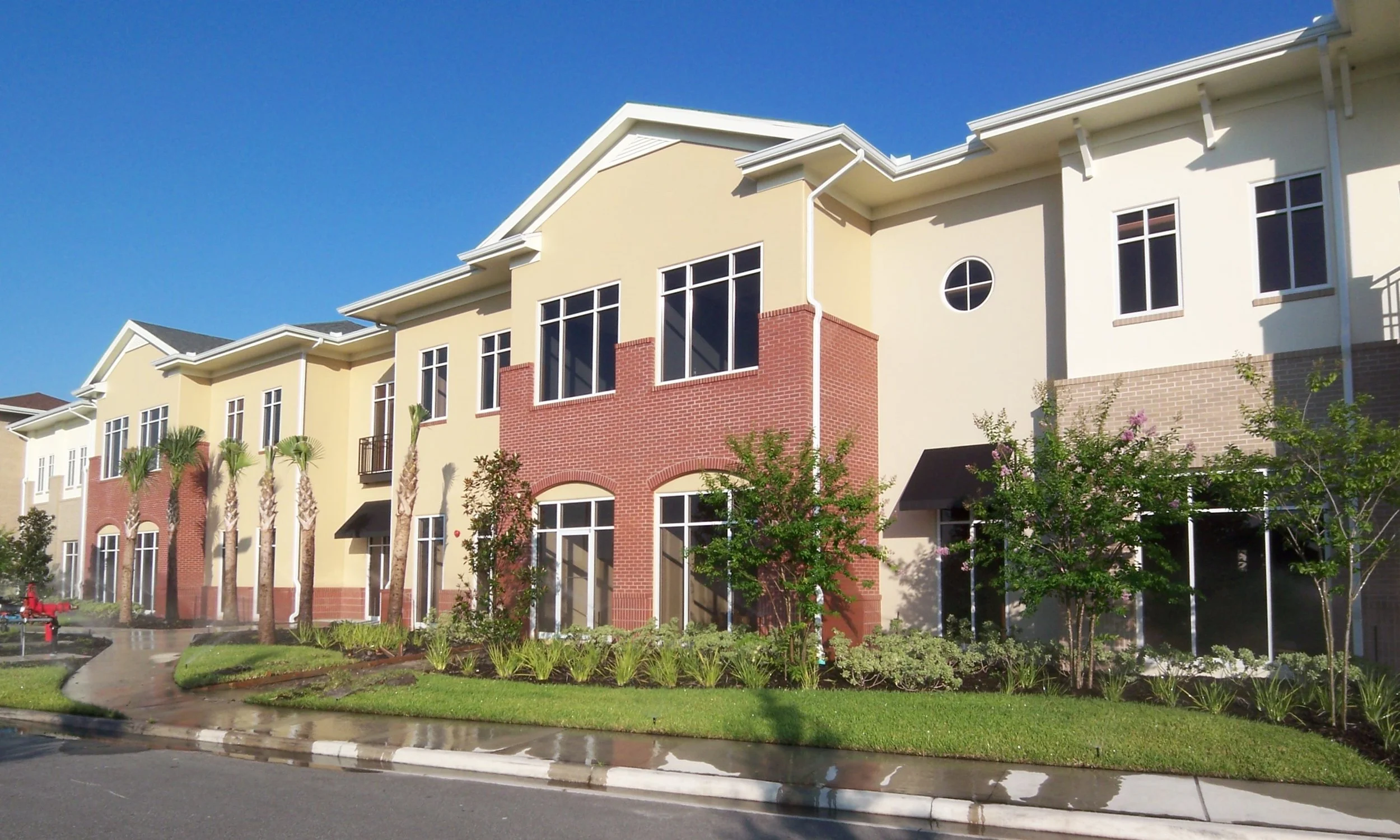LATEST NEWS
Negotiating an Institutional Quality Lease: A Vital Component in Healthcare Real Estate Sale/Leaseback Transactions
In the ever-evolving landscape of healthcare real estate, the sale/leaseback model has emerged as a popular and strategic choice for healthcare providers looking to unlock the hidden potential of their medical properties. This arrangement offers an infusion of capital while allowing healthcare facilities to continue their operations. However, in such transactions, negotiating an institutional quality lease is proving to be an essential element that can make or break the deal.
As medical facilities face the dual challenges of increasing costs and regulatory changes, healthcare real estate brokerage firms are finding innovative ways to help providers adapt. The sale/leaseback scenario has gained prominence as a solution that offers liquidity, financial stability, and operational flexibility.
THE SALE/LEASEBACK SCENARIO
In a typical sale/leaseback arrangement, a healthcare provider sells its medical building to an investor, often a real estate investment trust (REIT) or a private equity firm, and subsequently leases the same property back to continue their medical practice. This provides immediate capital injection for the healthcare provider, which can be reinvested in core healthcare services, equipment upgrades, or debt reduction.
THE ROLE OF AN INSTITUTIONAL QUALITY LEASE
While the sale/leaseback model offers financial advantages, the heart of the deal is the lease agreement. This article outlines the terms, conditions, and obligations of the healthcare provider as a tenant. It also significantly influences the investor's perception of the asset's stability and income potential. Hence, negotiating an institutional quality lease is crucial for various reasons:
ATTRACTING QUALITY INVESTORS
Investors in healthcare real estate are drawn to properties with long-term leases in place, especially when these leases have stable rental growth and are structured to provide a consistent income stream. An institutional quality lease ensures the property is a reliable investment for these stakeholders, increasing the sale price and overall transaction value. With that said, there is a fine line between an institutional quality lease and securing the best outcome for the healthcare provider, rather than just satisfying the Buyer’s needs.
OPERATIONAL AND FINANCIAL STABILITY
An institutional quality lease establishes clear rent escalations and lease terms that are fair and equitable for both parties. This stability is vital for healthcare providers who need to plan their budgets with certainty. The initial lease rate should also be set at a value that is seen as favorable for future physicians entering the practice, thereby strengthening the succession plan and fostering a higher value for the practice overall.
COMPLIANCE WITH HEALTHCARE REGULATIONS
The healthcare industry is highly regulated, and the lease must comply with various healthcare laws and regulations. Negotiating an institutional quality lease ensures that the healthcare provider and the property investor adhere to these standards, minimizing potential compliance issues down the road.
FLEXIBILITY AND CUSTOMIZATION
An institutional quality lease can be customized to the specific needs of the healthcare provider. It can include provisions for improvements, expansion, or contraction of the facility, ensuring that the property remains a suitable environment for delivering quality patient care.
LONG TERM CONTROL WITH NO RECOURSE
Having representation will ensure the lease will provide multiple options to extend the lease at Fair Market Value ensuring long-term control and the ability to reduce rent in the future. In addition, a lease should be structured as a non-recourse lease meaning that the physicians will not have any personal liability.
RISK MITIGATION
A well-negotiated lease can help mitigate risks associated with the property, as it clearly outlines responsibilities for maintenance, repairs, and insurance. This can protect both the healthcare provider and the property investor, leading to a more secure investment.
TENANT’S REPUTATION
An institutional quality lease reflects positively on the healthcare provider's reputation. Investors often consider the tenant's track record and commitment to maintaining the property, so a professionally structured lease demonstrates a strong commitment to the facility's long-term success.
CONCLUSION
In conclusion, the sale/leaseback model is a strategic choice for healthcare providers seeking financial flexibility while maintaining operational control of their medical buildings. However, the success of such transactions hinges on the negotiation of an institutional quality lease. This lease not only attracts quality investors but also ensures long-term stability, regulatory compliance, and risk mitigation for both parties involved. To navigate this complex process, the advisors at Capital Real Estate Group play a pivotal role in securing the best possible lease agreements for their clients, ultimately contributing to the growth and resilience of the healthcare real estate sector and the physician practice.
Your Trusted Healthcare Real Estate Partner
CREG | U.S. HEALTHCARE INVESTMENT SALES
Andrew R. Larwood
Managing Partner & Principal
m: +1 (770) 845-2091
andrew.larwood@capitalre.com
Allen C. Inman
Managing Partner & Principal
m: +1 (404) 550-7897
allen.inman@capitalre.com
Joshua D. H. Rees
Managing Partner & Principal
m: +1 (858) 312-0657
josh.rees@capitalre.com





















